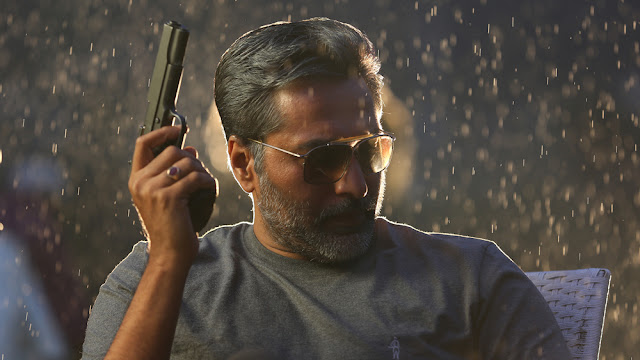'I'm still a ‘hero’ in Malayalam cinema'
Remember Rahman who played memorable roles in films like K Balachander’s Pudhu Pudhu Arthangal and KS Ravikumar’s Puriyaadha Pudhir? Kollywood isn’t new territory for this multilingual actor, who is well-known among the Tamil, Telugu and Malayalam film industries. After his role as a businessman in Kuttrame Thandanai, and Jyothika’s husband in 36 Vayadhinile, Rahman is open about experimenting with looks to suit his onscreen characters. He’s upbeat about Dhruvangal Pathinaru, and Oru Mugathirai, up for release soon.
“Dhruvangal Pathinaru is a psychological thriller directed by 21-year-old Karthick Naren. When he approached me with the script, I was hesitant, because I didn’t know anything about him. He told me he had directed a couple of films that fetched him awards,” he narrates. “Then I realised he was confident of his work. He had quit engineering to concentrate on filmmaking. It was a different kind of experience to work with a young team.”
The best thing about the younger batch of stars and technicians, he adds, is that they don’t have an ego and have no qualms about asking for help and clearing doubts. “Their approach to cinema is transparent and they know exactly what they want,” he says. It took 28 days for the team to complete filming. “The running time is about an hour and 45 minutes. The film has no songs.”
Though Rahman’s mother tongue is Malayalam, his priority has always been Tamil cinema. “I was quite lucky to be a part of many good films back in the 80s and 90s. I never believed in doing many films. I choose projects when I get interesting characters. Also, I should do justice to the roles I pick, and that’s what matters,” he grins.
In Malayalam, he has worked with renowned personalities like Prem Nazir, Padmarajan, Bharathan, IV Sasi and Sathyan Anthikad, among a few. It was Nilave Malare (1986) that brought Rahman to Tamil cinema. “I was doing well in Malayalam when this Tamil project came to me,” he recalls.
Why has he not done many Tamil films? “I don’t knock on doors for any opportunities. I neither party nor make conscious effort to promote myself. I started out when I was young. I lost touch with some of the amazing directors that I got to work with. In fact, I did a lot of good work in Malayalam cinema, but I have done more films in Tamil. It’s not because I wasn’t interested in Malayalam films, just that I felt I was getting substantial roles in Tamil and Telugu,” he shares.
Eventually, when filmmakers started approaching him for negative characters, he felt he was being typecast. “Success in a particular genre or role automatically gets same roles over and over again. So far, I have been getting only anti-roles. I don’t mind doing grey-shaded roles, but they should be justified in the end. My transition has been a huge learning curve, and in the due course, I learnt to trust my gut feelings when it comes to certain decisions,” he adds.
But why did he give in? “Because I need to take care of my family. Sometimes, these compromises are simply made. At the same time, I try to be on my terms. I am not accepting any villain-bashing by the hero. Also, I don’t want to play the typical dad. You know, I am still a ‘hero’ in Malayalam cinema,” he laughs.
Like several other performers of his generation, he’s hoping that filmmakers will shift their attention to making movies that will include elements of romance, pathos, joy and fun, which will cater to a middle-aged audience. “Tamil cinema should learn a thing or two from Bollywood or Hollywood in this regard. Seasoned actors play their age and yet are the leading men in those films too,” he observes.
On a lighter note, he chuckles, “Call it destiny, luck or fate; there are many who do not receive the recognition they deserve for their work.” And then suddenly he gets cautious, and adds: “I hope you don’t presume I think too much of myself.”
What keeps him occupied when he doesn’t shoot? “I have been writing stories when I am free. Direction is on the cards, yes; but not immediately. It’s a huge responsibility,” he smiles.
(The piece was originally published for The New Indian Express)



Comments
Post a Comment